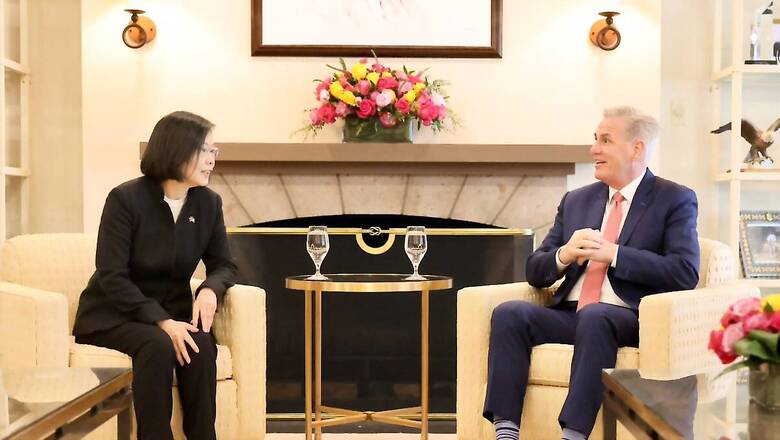
views
Taiwan’s former President Ma Ying-jeou, Tsai Ing-wen’s predecessor from the Kuomintang (Nationalist Party), who led smooth relations with China from 2008 to 2016, last week embarked on an unprecedented 12-day, five-city tour of China. To counter it, Tsai met United States House of Representatives Speaker Kevin McCarthy in Los Angeles.
Taiwan will see a new president in the next eight months as the country is heading for polls. Ahead of that, the tallest leader from the Democratic Progressive Party (DPP), considered pro-democracy and pro-America, makes a visit to the United States, and KMT, which is in opposition but ruled Taiwan for the longest time, sends its tallest leader and former president to China for a 12-day tour. The message is loud and clear: the DPP promising democracy and freedom underlines ties with the US, while KMT promises stability, smooth relations, and trade with mainland China.
Will foreign policy decide fate of presidential polls in Taiwan?
Citizens in Taiwan enjoy freedom and democracy but they also urge for a peaceful atmosphere for businesses, tourism, and stability of the region. Protests in Hong Kong, and forcible suppression of those protests by China, had led to an increase in the popularity of Tsai’s pro-democratic approach in 2016, which resulted in her victory. However, now citizens are also wary of being used as pawns in an escalating standoff between China and the US. Many in Taiwan believe that US support is motivated by American national interest, which might differ from the national interest of the island.
Some also believe then US House Speaker Nancy Pelosi’s visit in August 2022 resulted in an increase in tensions between the two countries and helped the United States bag arms sales contracts worth $1.1 billion.
Namrata Hasija, a research fellow with Delhi-based Centre for China Analysis and Strategy, said, “KMT was in power for a long time and it worked with Americans. It did not have any contact with mainland China. Only after the 1990s, contact with mainland China was established, after which many direct flights were started between Taiwan and mainland China during the KMT regime. It was also planning to sign a trade deal with China, which led to the Sunflower Movement in Taiwan. All the KMT wants is to strike a balance.”
The Kuomintang wants to buy more time as it feels that Taiwan is not prepared for a war with China. It has an office in the US. The narrative the KMT is pitching is of balance between the US and China for the stability of the strait.
“Right now they are focusing more on what they are saying they want, stable cross-strait relations,” said Hasija.
The last KMT regime was a time of exchanges and strengthening ties with mainland China based on a 1992 consensus: a political agreement in which both Beijing and Taipei agree that they belong to the same country, even if they disagree over which is the legitimate authority. President Tsai’s DPP does not recognise the 1992 consensus.
Roger Liu, associate professor at Pune’s FLAME University and an expert on South Asia and Southeast Asia, said, “KMT supports collaboration with mainland China. When they were in power, they supported exchanges with mainland China. What KMT is doing is to go back and voice old policy to get some votes.”
During his visit to China, Ma Ying-jeou made a statement that in itself explains KMT’s politics. “We all belong to the Chinese race,” he said.
KMT wants to build a narrative in its favour by giving this sense that the de facto independence of the island nation can only be safeguarded by it and not the DPP under which the threat perception has increased, resulting in resulted in less tourism and business.
Sana Hashmi, a research scholar who stays in Taipei and has been observing the politics of Taiwan closely for years, said, “Most people here want the status quo. War is definitely what they don’t want. Having said that, the majority cherishes democracy here. So ‘unification’ is out of the question.”
According to a poll in March by Taiwan Public Opinion Foundation (TPOF), 78% of the islanders describe themselves as Taiwanese rather than Chinese or some mix.
The KMT also blames Tsai and DPP for the deteriorating international presence of Taiwan in terms of diplomatic relations as since she took office in 2016 the island has lost nine diplomatic allies to mainland China, the recent one being Honduras in March. So now only 13 countries have given recognition to Taiwan.
Interestingly, neither party has announced a candidate for the post of president.
How important is America to Taiwan?
The United States remains the most important and biggest ally of Taiwan even after shifting recognition to Beijing. After the formal recognition of the government in Beijing, the US passed the Taiwan Relations Act to define officially substantial but non-diplomatic relations with Taiwan. The United States signed the August 17, 1982, US-China Communique on Arms Sales to Taiwan. The United States has a longstanding One China policy, which is guided by the Taiwan Relations Act, three US-China Joint Communiques, and six assurances. The US opposes any unilateral changes in the status quo from either side. Taiwan is the United States’ eighth-largest trading partner and the US is Taiwan’s second-largest trading partner.
The American Institute in Taiwan performs citizen and consular services similar to embassies in other countries. Taiwan maintains the Taipei Economic and Cultural Representative Office (TECRO) in Washington, DC. Taiwan’s investments in the US and trade support thousands of Jobs in America.
The recent tensions across the strait are believed to be a result of a dip in China-America relationships, which started with a trade war. The US handles the relationship with Taiwan very carefully as China reacts to any exchange with Taiwan.
The last US House Speaker to visit the island was Newt Gingrich in 1997 before Pelosi’s trip that resulted in a further escalation in tensions across the strait as China conducted multiple military exercises and encircled Taiwan.
In the next one month, the US cleared $1.1-billion arms sales to Taiwan. So many believe the US concerns for Taiwan are guided by its own interest in the Pacific and profits to its military-industrial complex as Taiwan buys arms and defence technology from it.
“Americans have their own interest in Taiwan. If China invades Taiwan, their bases in the Pacific will get exposed and it will also affect the sales of arms to Taiwan. America wants to control the growth of China. The fresh escalation followed by the Pelosi visit got started after the US declared a trade war against China,” said Namrata Hasija.
After tensions over Pelosi visit, Tsai meets McCarthy on US soil
China’s rhetoric around Pelosi’s visit has been heated. The PLA did live-fire military exercises in the waters around Taiwan from August 4-7. PLA planes violated Taiwan’s airspace. Beijing announced a ban on various products from Taiwan. Sanctions were announced on various leaders from Taiwan. China also cancelled dialogues with the US.
Observers believe that this time around, US House Speaker Kevin McCarthy was expected to visit Taipei, but later the arrangement was reversed and both sides worked on a fresh medium of “transit diplomacy” to have dialogue and avoid Chinese aggression, and that in fact resulted in a mild response from China.
Roger Liu from FLAME University said, “Tsai was in transit, so she thought of making the best use of her time. The US does not want to upset China but also to show support for Taiwan.”
In diplomacy, the selection of venue is very important, and this time both sides worked very carefully and zeroed down on the Ronald Reagan Library in LA, away from diplomatic city Washington, DC, or New York. The US knows many tactics to establish contact with Taiwan.
“The selection of venue was wisely done which has not affected China that much. Since Ronal Reagan signed the August 17 document, which is most important in terms of Taiwan, and as he was a staunch supporter of Taiwan, in that regard the US government selected the right venue to meet Taiwanese counterparts,” said Liu.
China did object to the visit, but the response was mild in comparison to Pelosi’s visit to Taipei last year.
In a statement, the Chinese foreign ministry said, “The meeting of the US Speaker of the House of Representatives and the President of Taiwan seriously violated the US commitment to China on the Taiwan issue.”
China sanctioned the Hudson Institute and Reagan Library for hosting and engaging President Tsai. Chinese carrier Shandong was reported seen off the coast of Taiwan. PLA planes violated Taiwanese airspace again.
China claims the Taiwan Strait is its sovereign territory and since President Xi Jinping’s third term is going on, it has made the situation even more complicated as the possibility of invasion/unification is at an all-time high, since China knows Taiwan is not prepared for war, and even US government reports suggest the same. Many observers also say a lot will depend on the presidential elections which will take place in the next eight months that may decide the fate of Taiwan.
Read all the Latest News here















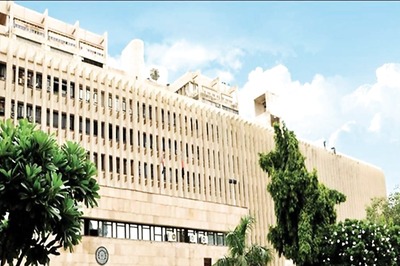
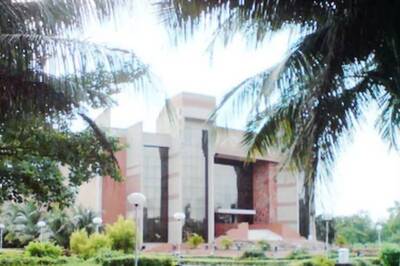
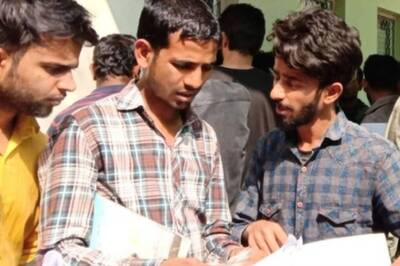
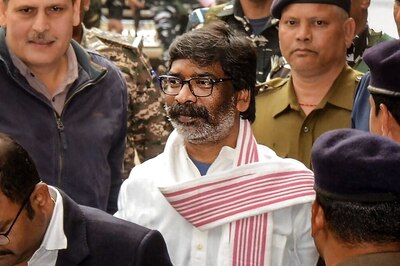
Comments
0 comment